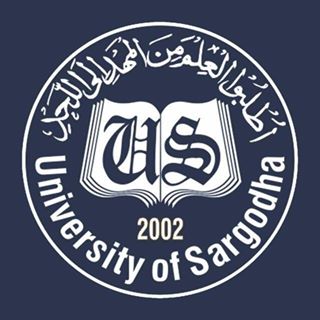Articles
-
Click To
Read More
-
Abstract
Symbol, the subsequent stride in metaphorical expression and also known as an emblem or sign, holds a pivotal role in literature, particularly in poetry. Within the realm of modern Urdu poetry, it assumes a foundational status, serving as the bedrock of manifold ambiguity. Scholars of Urdu literature harbor diverse and myriad interpretations regarding symbolism. While some perceive it as latent within the text yet integral in meaning, others attribute its essence to the fluidity of meanings inherent in literary compositions. By synthesizing the perspectives of various critics, this article endeavors to elucidate the essence of symbolism. Such elucidation aids in unraveling the structural and formative underpinnings of literary works, thus guiding readers toward a comprehensive grasp of the profound connotations enshrined within the text.
Attached Document
DownloadAuthors
dr. Rashid Saeedi
-
Volume : 5 (Rekhta 9) Issue : 1 Year: 2024
2. Understanding Early and Deccan’s Urdu Literature through Lexicographical Efforts. اردو کے قدیم عہد کی تفہیم اور دکنی و قدیم ادب کی لغات
Click ToRead More
-
Abstract
Like every evolving language of the world, the Urdu language also has made many developments in its nature through the course of time. The early history of the Urdu language shows a variety of different dialects, styles, and diction. Deccan period in the history of Urdu language and literature reflects this situation especially. Along with this fact, we find many efforts to resolve the peculiarity of the language of the above-mentioned era through lexicography. Masood Hussain Khan, Ghulam Umar Khan, Jamil Jalibi, Agha Haider Hassan, Javaid Vaishisht, Sayeda Jafar, and some others have made some remarkable efforts through their lexicographical works about the Deccan and early period of Urdu. These works help us better understand the Deccan’s or early literature. This article comprises an overview of such works. It also presents a comparison of these dictionaries.
Attached Document
DownloadAuthors
Dr. Sajid Siddique Nizami
-
Volume : 5 (Rekhta 9) Issue : 1 Year: 2024
3. Evolutionary Analysis of Akhtar ul Eeman’s Poems. اخترالایمان کی نظم کا ارتقائی مطالعہ
Click ToRead More
-
Abstract
Akhtar Ul Emaan is an important poet of modern Urdu poetry, but Urdu criticism and research has not given him the attention he deserves. Undoubtedly, his name will continue to be mentioned along with Faiz, Rashid, Mira ji and Majeed Amjad. His poetry made the subject of the external and internal tragedy of the present era very well. Here in this article, an attempt has been made to study the evolution of his poems and try to find out how the themes and styles of his poetry changed over time and how his thoughts matured.
Attached Document
DownloadAuthors
Dr. Asia Nazli / Dr. Mazhar Abbas. ڈاکٹر آسیہ نازلی / ڈاکٹر مظہر عباس
-
Volume : 5 (Rekhta 9) Issue : 1 Year: 2024
4. Faminine Narrative in Patriarchal Society:A Critical Analysis of Hasan Manzar’s Novelett “Maan Beti”. مرد اساس معاشرے میں عورت کا بیانیہ: حسن منظر کا ناولٹ "ماں بیٹی" (تحقیقی و تجزیاتی مطالعہ)
Click ToRead More
-
Abstract
The 21st Century Urdu fiction has witnessed the dramatic rise of the theme of female voice in Urdu fiction. Numerous Urdu fiction writers are playing their part in promoting the said discourse through their works. Amongst them stands out the novella “Mother Daughter” by Hasan Manzar in which the female voice is given power. The beautifully crafted novella faithfully portrays the wounds inflicted upon the women subjugated by patriarchy. The present paper analyses Manzar's “Mother Daughter” in the same perspective to highlight the growing sense of feminine agency.
Attached Document
DownloadAuthors
Dr. Abubakar Farooqi/ Ahmad Abbas. ڈاکٹر ابو بکر فاروقی/احمد عباس طور
